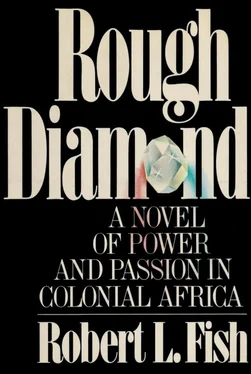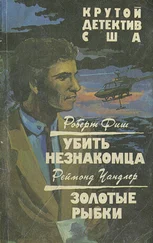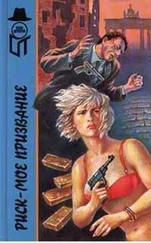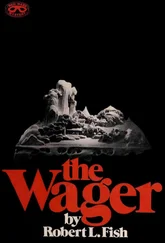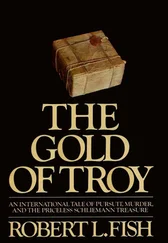And in this situation, with the gold-mining industry of Johannesburg in a profound depression, and with no solution in sight that anyone could see, Barney Barnato arrived back from England. He had been away almost five years and while Fay had enjoyed the refinements of England, and the meeting of Barney’s family, the miscarriage she had suffered there, losing what both Barney and Fay had hoped would be their first child, had put a pall over the trip that the Grand Tour of the continent had failed to remove. Now both were pleased to be back in South Africa and on their way back to Kimberley. Fay was once again pregnant, and Barney was sure that here at home, among friends and in the country they both loved, there would be no further trouble in the childbearing business.
And Barney was also sure that it was time to be getting back to work. They were saying that the gold business was finished up in Johannesburg, that people were selling out, and that the city would soon die as Pilgrim’s Rest and Barberton had died. It was precisely the type of challenge that Barney Barnato enjoyed; this business of gold, apparently, needed looking into…
The driver of the new and expensive trap that Barney had acquired was at the stable harnessing the four horses that would draw the trap on the first stage of the long and tiresome five-day trip to Johannesburg; the outriders who had been selected to accompany the trip were in the corral behind the stable selecting the horses that would be taken along as replacements. The railway from Cape Town to Kimberley had been finished and in operation for over seven years, but the stubborn Paul Kruger refused permission for the line to be extended into Transvaal territory. It would, he said, bring in more Uitlanders and further despoil what had been a moral and religious land before the hated foreigners had brought in their brothels and their whores and their gaming and their greed and all the rest of their verdoem vices. It was bad enough that some Uitlanders were already there, but he had no intention of encouraging their sins by allowing a railway to be built that would bring in thousands more. Let them travel by carriage or oxcart over the rough roads and trails; it might even make them think twice before coming to Johannesburg in the first place.
Barney stopped by the Paris Hotel to see that the trap was supplied with a wicker basket well filled with whiskey and sandwiches for at least the first part of the journey. He and Fay no longer lived at the hotel; during their absence in Europe a large home had been built to Barney’s specifications as a surprise gift to Fay upon their return, but the Paris Hotel still drew him to it for entertainment, nor had he ever been tempted to sell it. It was a visible sign to him of where he had come from, of the poverty with which he had arrived in Kimberley, and he never wished to forget either those conditions or those days. Besides, it was here he had bedded his beloved Fay for the first time, and he knew he would never forget the early days of their marriage, enjoyed in this very building.
He gave the proper instructions to the barman as to his wants for the wicker basket, and while waiting turned to see who might be around. And then Barney was grinning his broadest grin at sight of a large hulking figure in the dining room having breakfast. Barney walked over.
“Andries!”
The large man looked up, his bronzed, deeply lined face wrinkling in a broad smile of pleasure. “Barney!” The smile faded. “I mean, Mr. Barnato. You remember me?”
Barney drew up a chair and motioned to the waitress. When she came over he ordered a bottle of the house’s best brandy, always the favorite drink of the Boer, even for those who, like Andries, drank sparingly. He sat down and moved the chair to face the other. “I’ll never forget you,” he said simply. “And what’s this Mr. Barnato nonsense?”
Andries looked embarrassed. “You’re known all over the country, Mr. — I mean—”
“Barney!” Barney said firmly.
“Barney, then. They say you’re a friend of the new Premier, Mr. Rhodes. And they say you’re the richest man in the country.”
“I suppose I am,” Barney said with no attempt at false modesty. “I’ve been lucky. Luckier than you know. D’you remember that girl—” He paused as the waitress brought a bottle and two glasses to the table. He poured two large drinks and pushed one across to Andries. “To your health.” They drank and then Barney went on. “D’you remember that girl we met on the trail? Fay Bees? Her mother died and we buried her up on the Orange?”
“I remember. A very pretty girl.”
“A beautiful girl!” Barney said fervently. “We’re married.” He could not keep the pride of possession from his voice. “We’re going to have a baby very soon.” He considered Andries gravely. “D’you know, when I think of Fay and how I met her, I owe you a great deal. More than you can imagine.”
Andries shook his head. “You owe me nothing.” He looked around, purposely changing the subject. “This is the first time I’ve been to Kimberley in many years. It’s certainly improved since I first dropped you off — in front of this very hotel, I believe.”
“That’s right. And the town has improved, thanks to a lot of work by a lot of people. We think it’s a fine town now. But what brings you to Kimberley now?”
“A load for Johannesburg. No railway, you see. I loaded up at the goods shed; the load came up from Cape Town by train.” Andries smiled a bit ruefully. “When they have railways all over the country, it will be a different world…”
Barney made up his mind on the spot, as he usually did. “Andries, can you get another driver, someone down at Market Square, to take the load? In your wagon — or in theirs, if they prefer?”
“Why should I do that?” Andries said, puzzled by the request.
“Because I want you to come with me. I’m going to Johannesburg, leaving today, going by trap. You could take the place of my driver. As a matter of fact,” he added, struck by the neatness of the solution, “my driver could take your wagon up there. He’s completely reliable. And it would give us a chance to talk.”
Andries studied the still-young face looking at him so earnestly.
“And what would we talk about?” he asked gently. “Let us be honest with each other, Mr. — I mean, Barney. We’re miles apart; we have nothing in common. I’m an old drover; you’re a rich man. What would we talk about?”
“We have two of the most important months of my life in common,” Barney said with conviction. “We can talk of many things. You said yourself that eventually the railway will cover this country. What will you do then, when ox wagons are just a curiosity in some museum?”
Andries finished his drink and put his glass down. Barney reached for the bottle, but Andries laid one of his huge hands over the glass.
“No, that is enough. What will I do when ox wagons are just a memory?” He shrugged lightly. “Then I’ll find a small piece of land and grow my own vegetables, raise a few cattle, watch my oxen graze. Watch them grow old. And, in time, watch them die. Or they’ll watch me die, one or the other.”
“How old are you, Andries?”
“Sixty-two, or maybe sixty-three. Old enough.”
“If you want to sit around on a piece of ground,” Barney said, trying to get the other to see reason — as usual, once his own mind was made up he had difficulty understanding why everyone didn’t see things his way — “they say the land around Johannesburg is good for cattle. I’m going up there to see what else the town is good for; I’ve waited too long as it is. Come with me. We’ll find something we can do together.”
Читать дальше
